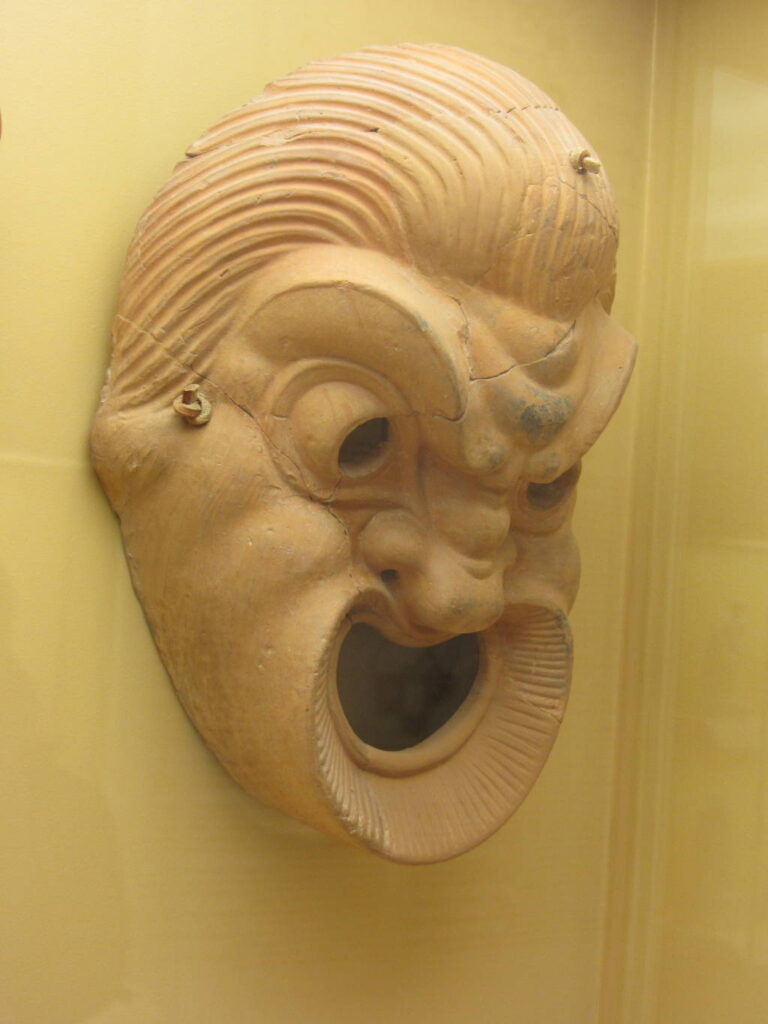The Making Sense
Making Faces, Performing Persons
Smiles were in short supply in the darkest days of the Covid-19 pandemic, and in large part because so many were concealed beneath masks. In societies that have no modern tradition of wearing masks or veils, the unfamiliar sight of concealed faces can be disconcerting. This is not because we are unable to see the flesh of the face – a lifeless face can be quite as disconcerting as any mask – but rather because artificial face coverings conceal our arts of face making. The face is, after all, the only part of the body that we commonly talk of in terms of “making” and of being “made up”. The very word “face” derives from the Latin facere – to make or to do. In this section, we consider the psychological power of face-making and the exploitation of that power in political performance. We will also consider, more deeply, how physical face-making parallels rhetorical crafting of persona in politics, law, and society at large.
Jiyoung Chae (2019): YouTube makeup tutorials reinforce postfeminist beliefs through social comparison. (Read)
Jones, L., & Gelbart, H. (2018, June). Make-up: Have YouTube stars boosted beauty sales? BBC News (Read)
N Kanwisher and G Yovel, “The fusiform face area: A cortical region specialized for the perception of faces” (2006) Philosophical Transactions of the Royal Society Biological Sciences 361:2109–2128 (Abstract)
Job van den Hurk, Marc Van Baelen, Hans P. Op de Beeck. Development of visual category selectivity in ventral visual cortex does not require visual experience. Proceedings of the National Academy of Sciences, 2017(Read)
‘Faces in Places blog’ (Read)
Hadjikhani, Nouchine; Kveraga, Kestutis; Naik, Paulami; Ahlfors, Seppo P. (2009). “Early (M170) activation of face-specific cortex by face-like objects”. NeuroReport. 20 (4): 403–07 (Read)
“‘Neptune’ appears in the waves during storm in Newhaven” BBC News 8 July 2021 (Read)
John Gauden, A discourse of artificial beauty, in point of conscience between two ladies with some satyrical censures on the vulgar errors of these times (London: Printed for R. Royston …, 1662) (Read)
The Duties of Judges of Assize Henry Craik, ed. English Prose. 1916. Vol. II. Sixteenth Century to the Restoration (Read)
Kristiina Jokinen, Masafumi Nishida, and Seiichi Yamamoto, “On Eye-gaze and Turn-taking” Proceedings of the International Conference on Intelligent User Interfaces (2010) pp. 118–123. (Read– subscription to external site required)
“Trump explains jab at Fiorina’s face: I’m an ‘entertainer'” CN (Read)
“Trump on Fiorina flap: Not about looks, but ‘whole persona” Fox News (Read)
Albatel Ltd v HMRC [2019] UKFTT 195 (TC) (16 March 2019) (Read) Para. 193
“Lorraine Kelly wins £1.2m tax case against HMRC over ITV work” BBC News (Read)
Kameron Virk and Nesta McGregor, “Blackfishing: The women accused of pretending to be black” (Read)
Marcel Marceau I The Maskmaker [1975] (Watch)

LAW HUMANITIES